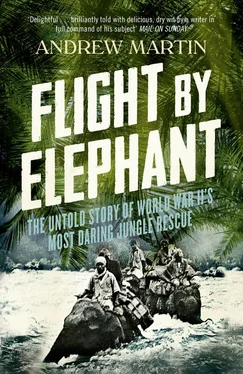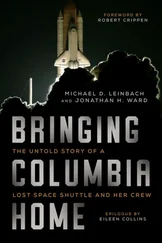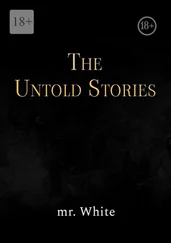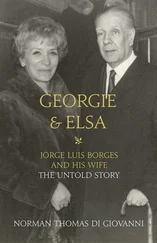The passage continues to the effect that, with Burma up its sleeve, British India has no need to maintain a large fleet in the Bay of Bengal, or to keep large garrisons on the India–Burma border. The generals were thus able to concentrate on that more likely weak link of Indian defence, the North-West Frontier, while keeping Burma itself lightly garrisoned with just 6000 British and 3000 native troops. Tim Carew, author of The Longest Retreat , has a different perspective. The defence of Burma on the eve of the Second World War was, he writes, ‘ludicrously inadequate’.
… Not least because Japan also wanted Burma as a buffer state: a 2000-mile-long protective wall to the west of its native islands. But Britain was insufficiently wary of the Japanese, who had been her allies (against Russia, the common bugbear) until 1921. To the British, the Japanese were small, dapper, decorous people, usually amusingly short-sighted, hence bespectacled. Emperor Hirohito seemed to fit the bill perfectly, as did the Japanese consul in Rangoon (who, myopic or not, turned out to be running a network of spies drawn from the Japanese population of the city). For years after 1921, the Japanese enjoyed a good press, and they did not figure in the demonology set out by George Orwell in his famous essay of 1940 on boys’ weekly comics. This ran:
Frenchman: Excitable. Wears beard, gesticulates wildly.
Spaniard, Mexican etc: Sinister, treacherous.
Arab, Afghan, etc: Sinister, treacherous.
Chinese: Sinister, treacherous. Wears pigtail.
Italian: Excitable. Grinds barrel-organ or carries stiletto.
The Japanese invasion of China in 1938 did cause a twinge of anxiety on Burma’s behalf, and not only to Britain. In the first half of 1942, Burma was nominally defended by three Allied nations, but only half-heartedly in each case. To the British, Burma was a blind spot, as we have seen. Then there were the Chinese and the Americans, who defended Burma not for its own sake but because it was strategically significant in the battle of Chiang Kai-shek’s Nationalist Chinese forces against the Japanese invader, which the Americans sought to assist. Both China and America saw Burma as a road: the Burma Road. That sounds like a major highway, but to European eyes it would have looked like not so much a minor road as a farm track. This lifeline for the Nationalist Chinese – since the eastern seaboard was under Japanese occupation – had been opened in 1938: 600 miles of hairpin bends running through mountainous territory from Lashio, 500 miles north of Rangoon, into Kunming, China. America also added to the firepower within the Burmese borders, in the shape of the Flying Tigers, or the 1st American Volunteer Group of the Chinese Air Force. Its sixty or so planes – not enough – were decorated with the faces of sharks, and the flyers (paid such high wages by the Chinese that they have been characterized as mercenaries) were equally decorative, swaggering around Rangoon in their leather jackets.
But as far as the British were concerned, the role of the Flying Tigers was precautionary. After all, a Japanese invasion of Burma had been officially ruled out by Far Eastern Intelligence Bureau (an organization credited by Tim Carew with being ‘a mine of misinformation’). The Japanese couldn’t possibly invade Burma. Proudly neutral Thailand was in the way … unless Japan reached an accommodation with Thailand (which is just what happened, in October 1940).
It was as though the British in Burma, enervated by the climate, were sunk in a languorous dream: a world of white-turbaned servants bowing low in the clubs; of palms and jacaranda trees in the wide, white avenues of the city, with green parakeets skimming through the pale blue skies above; of pretty, pert Burmese women – unconfined by veil or purdah – sporting orchids in their piled-up hair, with golden bangles on their slender wrists. They would twirl their paper parasols while puffing coquettishly on outsize cheroots and generally presenting very good wife or (more likely) mistress material. Outside Rangoon, the flower-bedecked houses and shops … the smiling villagers trundling by on slumberous bullock carts, through a shimmering countryside dotted with Christmas treelike pagodas.
Burma offered a more leisurely life than India. Its branch of the Indian Civil Service was less competitive, and so attracted the more easy-going sahib. In The Ruling Caste: Imperial Lives in the Victorian Raj , David Gilmour writes that some members of the Indian Civil Service regarded Burma as ‘a place of banishment … The climate was unhealthy and debilitating, especially in Upper Burma … and the mosquitoes were so bad in some areas that even the cattle were put under nets at night.’ A vivid, if jaundiced, account of the life is given by George Orwell in his novel of 1934, Burmese Days , which is based on his experiences as a police officer in Upper Burma. The central character, Flory, works in the Forestry Department. In view of what would happen to the British in Burma, it is interesting that he seems half menaced by nature, half enraptured by it. He spends the cooler months in the jungle, the rest of the time in a bungalow on the edge of an Upper Burmese town. He describes Burma as ‘mostly jungle – a green, unpleasant land’. In the garden of the town club, where the back numbers of The Field and the Edgar Wallace novels are mildewed by the humidity, some English flowers grow: phlox and larkspur, hollyhock and petunia. They will soon be ‘slain by the sun’. Meanwhile, they ‘rioted in vast size and richness’. There is no English lawn, ‘but instead a shrubbery of native trees and bushes … mohur trees like vast umbrellas of blood-red bloom … purple bougainvillea, scarlet hibiscus … bilious green crotons … The clash of colours hurt one’s eyes in the glare’. Vultures hover in a dazzling sky; in early morning temperatures of 110 degrees Fahrenheit, the Englishmen of the club greet each other: ‘Bloody awful morning, what?’
The country grips him like a fever, and sometimes the effect is euphoric. When Flory meets Elizabeth Lackersteen, the love interest of the book (Flory’s native mistress, Ma Hla May, cannot be so described), they bond over flowers. ‘Those zinnias are fine aren’t they? – like painted flowers, with their wonderful dead colours. These are African marigolds. They’re coarse things, weeds almost, but you can’t help liking them … But I wish you’d come into the veranda and see the orchids.’
Flory works some of the time ‘in the field’, but even he gets lost on a short walk through the jungle with his own spaniel bitch, Flo. The box wallahs (office workers) of the British Secretariat would tend the flowers in the gardens of their bungalows at Maymyo, the hill station to which they repaired to escape the oven that was Rangoon in summer, just as their counterparts in Calcutta went to Darjeeling. They rode horses through the margins of the jungle, but they would not penetrate deeper, to encounter, say, the giant banana plants that might for all they knew be quite literally the biggest aspidistras in the world. The evening breeze might bring the sound of a tiger’s roar intermingled with the tinkling of the temple bells, but that tiger was safely confined in the Maymyo Zoo. The British were protected from the jungle by their punka-wallahs, their chowkeydars (nightwatchmen) on the veranda, by the elevation of their houses above the malarial ground, their quinine pills and the revolver in the study drawer.
The Governor of Burma, Sir Reginald Dorman-Smith (Harrow, Cambridge, Sandhurst), was a fitting leader for this decorous and unreal society. A very good-looking man – almost too good looking – with a fondness for fragrant pipe tobacco, Dorman-Smith had seen action briefly in the Great War, but his former tenure as Minister of Agriculture under Neville Chamberlain hinted at a bovine temperament. He was not the sort of man to notice that he sat atop a very rickety edifice.
Читать дальше












